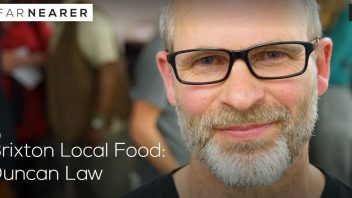Form a partnership group

Working with other local organisations is essential - how can you go about this?
We suggest that transforming your economic system couldn’t (and shouldn’t?) be done by a Transition group alone. There will be a number of organisations that have a strong interest in economic development where you live. Your local councils, for example, have a remit for this and usually some elected councillors who have a specific responsibility in this area.
Your community is entitled to ask the question ‘on whose behalf are you doing this work?’ and you need to have a good answer for that. A strong partnership of organisations with an interest in, or a responsibility for, economic development helps address this question. If this group does not already exist then you can initiate it. If it exists but you’re not a part of it, then you need to find a way to participate and influence.
As well as giving your work authority, this partnership should enhance the credibility of what you are doing, as it shows that it’s backed by other reputable and appropriate bodies.
It helps ensure that related work done by these organisations is joined-up, strengthening the power of the partnership group’s activities overall through collective understanding of each partner’s objectives, work programme and challenges.
The partnership (or stakeholder) group can help to resource your local REconomy activity, especially if this work is jointly defined by the group. While they may not have access to hard cash, they usually have skills, space and other assets at their disposal.
These organisations are part of the system you want to change, and they need to help design the solution with you. Without such a group of partners or stakeholders (whatever you call it), the risk is that your hard work will be very limited in what it can achieve. It also raises questions about why you are trying to do things to these organisations, rather than with them.
Who should be in your partnership group?
We suggest that this group should be small (less than 10 organisations?) and focused around the key economic players in your area. You can later widen your reach, but initially we have found an invite-only group that’s formed with a specific purpose (e.g. guiding an Economic Evaluation process) can work.
In our limited experience so far, general invites to lots of people from lots of organisations who may have an interest in your area’s economic destiny, to attend a general event for example, has not led to this smaller group being successfully formed.
So we suggest you begin with a mapping activity to establish who the key organisations are, along with the people you ideally want to join your group. Usually, the more senior the better as they have more clout, credibility and strategic thinking, but of course, they still need to be connected to the real world and the real work of their organisations to make the best contribution here. The best kind of representative will be someone who can be a champion of this group’s work within their own organisation, be at a level where they can have impact or connect you with those that do, and be a passionate and enthusiastic supporter, rather than someone sent along by their boss.
The organisations that may be strong contenders for your group include:
- District council – officer/member in charge of economic development.
- Town council – the councillors with a remit for economic development.
- Secondary schools and colleges – person with a remit for young enterprise, careers etc.
- Business organisations like the Chamber of Commerce, Small Business Association and so on. Find out which is most active locally.
- Community organisations – those with a related remit for economic and enterprise development, for example, Development Trusts, Regeneration Trusts, Enterprise Trusts and so on.
- Credit union or other community-friendly financial service providers.
- Local Charitable Trusts – those that are already supporting local enterprise or have an interest in doing so.
Ideally you have 2 people represent each organisation and both attend as many meetings as possible. This ensures continuity for when someone can’t make it, and gives them to chance to have some support within their own organisation for the work of this partnership.
How do you get their attention?
Building an effective, long-term partnership group with high levels of trust takes time and attention, and can’t be rushed. For some Transition groups who already have connections with the right individuals in these organisations, it can be as easy as sending an invite to the first meeting, and people will happily come along as a relationship is already in place.
More often perhaps you will have to work at it. Everyone tends to be very busy and they will need to see the benefits to them and their organisation if you are to get some of their precious time, especially the most senior people.
A good approach can be finding people who already know your target contacts, and asking them if they can introduce you. Then have individual meetings where you have a well-rehearsed and researched pitch about your planned partnership group, and why it’s deserving of their time and attention. As stated earlier, you will want to ensure the person doing this initial meeting has the knowledge and professional skills needed to engage credibly.
Hopefully you can refer to some of the work that’s been done in other places like the Economic Evaluation reports, highlight the essential role of partners within that, and the widespread sharing of this leading edge work far and wide. Often organisations will be attracted by the idea of enhancing their profile! Be clear about what you are asking of them – it might just be to come along to the first meeting, then they can decide what level of participation they can offer.
Feel free to contact us at the REconomy Project and ask if someone can come along and present, perhaps at your first group meeting. If we can, we’ll come and talk about what’s happening in other places and support you at this key early stage.
Ways of working
Be clear on the likely commitment, for example, initially it might be to come to a 2-3 hour meeting to find out about the proposed project, explore the potential for the group and gauge levels of interest. Then if the group decides to go ahead, then it might mean 4-6 meetings over the next 12 month period for example.
Finally, be clear about the proposed aims and purpose of the group, what you are asking for and what you are offering. These things all need to be discussed together with the group, and will likely become clearer over time. As with all groups, giving time to process (group ways of working, decision making etc.) is as important as the ‘doing’ activity.
Hear from some partners involved in the Economic Evaluation work so far
We’ve prepared a brief set of stories from some of the stakeholders and other project participants, and these may help you to identify the potential benefits for the individuals and organisations you are targeting:
- Richard Sheard, CEO South Hams District Council and West Devon District Council
- Councillor Jill Tomalin of Totnes Town Council
- Dr Sarah Wollaston MP for Totnes
- Lynette Sinclair, local business owner, Tideford Organics
Things to get you started
- This short video talks about our experiences of the partnership/stakeholder groups in Economic Evaluations
- Activity to help you map your potential partners or stakeholders
- TN’s Effective Groups Canvas helps you explore how your partnership group will work
Strengthening
- Advice to help you connect with new organisations and businesses
- Activities to help you practice and plan partner or stakeholder recruitment
- Learn more about running effective groups via this TN toolkit







Connect